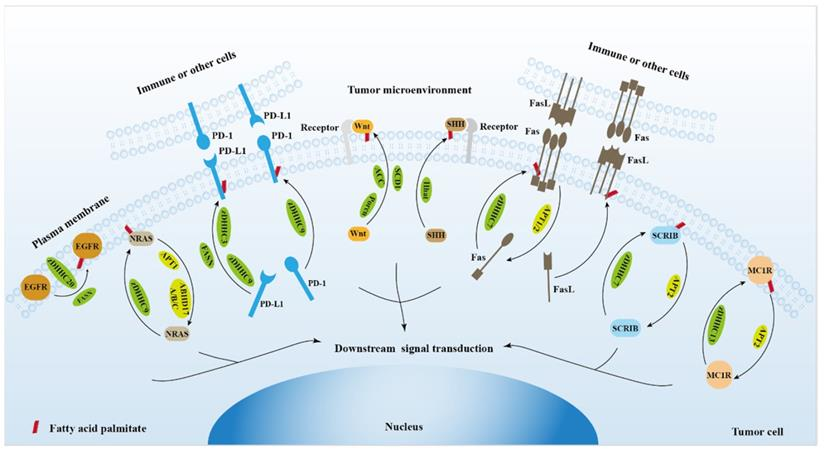
Background
The International Consortium for Palmitoylation Research was established in response to the growing recognition of the importance of palmitoylation, a post-translational modification that plays a critical role in cellular function. Palmitoylation involves the addition of palmitate, a saturated fatty acid, to cysteine residues in proteins, which can modulate protein localization, stability, and activity. Despite its significance, the study of palmitoylation has been fragmented across various research groups, leading to a need for a coordinated effort to advance the field.
Goals and Vision
The primary goal of the International Consortium for Palmitoylation Research is to foster a collaborative environment where researchers can share resources, data, and expertise to deepen our understanding of the molecular mechanisms underlying palmitoylation. The consortium aims to:
Standardize Research Practices: Develop and promote standardized experimental protocols for the study of palmitoylation to ensure reproducibility and comparability of results across different laboratories.
Facilitate Resource Sharing: Create a platform for the sharing of reagents, tools, and other resources that can accelerate research in the field.
Promote Data Sharing: Encourage the sharing of raw and processed data to enable large-scale data analysis and the discovery of new patterns and insights.
Enhance Education and Training: Provide educational resources and training opportunities for early-career researchers to ensure the next generation is well-equipped to study palmitoylation.
Drive Translational Research: Support research that explores the implications of palmitoylation in human health and disease, with the ultimate goal of developing therapeutic interventions.
The vision of the International Consortium for Palmitoylation Research is to become the leading global network for palmitoylation research, driving innovation and discovery to advance our understanding of cell biology and to improve human health.

Scope of Work
The work of the International Consortium for Palmitoylation Research encompasses a broad range of activities, including:
Research Collaboration: Facilitating joint research projects that tackle complex questions in palmitoylation biology, such as the role of palmitoylation in disease pathways or the development of new technologies for studying palmitoylation.
Resource Development: Developing and maintaining a library of palmitoylated proteins, antibodies, and other research tools that are essential for the field.
Data Management: Establishing databases to house palmitoylation-related data, such as protein palmitoylation sites, kinetic parameters, and structural information, making these data accessible to the scientific community.
Publication and Dissemination: Encouraging the publication of consortium research in peer-reviewed journals and presenting findings at scientific conferences to disseminate knowledge widely.
Outreach and Engagement: Engaging with the broader scientific community, including other research consortia, funding agencies, and industry partners, to promote the importance of palmitoylation research.
Education and Mentoring: Organizing workshops, seminars, and other educational events to train the next generation of scientists in the techniques and concepts related to palmitoylation.
Policy Advocacy: Working with funding agencies and policymakers to advocate for the importance of palmitoylation research and to secure the resources needed for the consortium to achieve its goals.
The International Consortium for Palmitoylation Research is committed to fostering a collaborative spirit within the scientific community, believing that through collective effort, we can unlock the full potential of palmitoylation research and its applications to improve human health.
